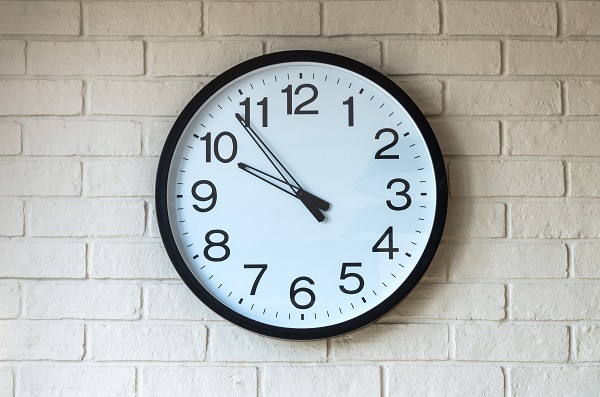Intermittent fasting has been gaining in popularity over the past few years. But what is it? And more importantly, how do you get started with intermittent fasting? If you are curious about this popular dieting trend, then you have come to the right place. This post will not only discuss what intermittent fasting is, but it will also teach you how to get started with intermittent fasting, as well as some of the health benefits of following this type of diet. So, before you start your next crash diet, be sure to read this post first!
Contents
What Is Intermittent Fasting?
Intermittent fasting is an eating pattern that alternates between periods of fasting and eating. Fasting is not eating or drinking calories for a set period, usually from 12 to 24 hours. However, eating can occur during a set window, such as 8 hours, 10 hours, or 12 hours. There are many different ways to do intermittent fasting, and people can choose the best plan for their lifestyle and goals.
Some people do it every day, while others may only do it a few times per week. There is no “right” way to do intermittent fasting, and there is no evidence that one method is better than another. Intermittent fasting has become popular in recent years, but there is also some evidence that it may have other health benefits; the next section will give you a brief overview of some of the different benefits.
The Benefits Of Intermittent Fasting
Intermittent fasting is a practice that has been used for centuries to promote overall health and wellness. Though the specific benefits of intermittent fasting vary depending on the individual, some general effects have been well-documented. For instance, intermittent fasting can help to improve insulin sensitivity, boost cognitive function, and reduce inflammation.
Additionally, because intermittent fasting forces the body to burn stored fat for energy, it can be an effective weight loss strategy. Finally, intermittent fasting has increased lifespan and reduced the risk of chronic diseases like heart disease and cancer.
The reason you receive most of these benefits is that when you fast, your body goes into a “fasting state,” which means that it starts to burn stored fat for energy, which can lead to weight loss. Additionally, fasting triggers a growth hormone release, increasing muscle mass and improving fat burning.
Tips To Get Started With Intermittent Fasting
At this point, you might be thinking, “Intermittent fasting sounds great! How do I get started?” If you are interested in trying intermittent fasting, you should keep a few things in mind to make the transition as smooth as possible.
Start Slow
When it comes to intermittent fasting, it’s essential to start slow. That means gradually increasing the length of time between meals. For example, if you currently eat three meals a day, you might start by skipping breakfast one day a week. Then, you can gradually increase the number of days you fast each week. Once you’re comfortable fasting for 24 hours, you can experiment with longer fasting periods.
However, it’s essential to listen to your body and ensure you’re not feeling overly hungry or deprived. If you feel excessively hungry, you can always break your fast and have a meal. The key is to find a balance that works for you and stick with it. With patience and practice, intermittent fasting can effectively improve your overall health and well-being.
Drink Plenty Of Water
When you’re intermittent fasting, you must ensure you’re getting enough water. Not only will it help keep you hydrated, but it can also help to reduce hunger and cravings. Some people find that they naturally drink more water when they’re fasting, but others may need to make a conscious effort to drink enough. Aim for eight glasses of water per day, and consider adding a squeeze of lemon or a splash of fruit juice to help make it more refreshing.
You can also want to carry a water bottle with you to take small sips throughout the day. By keeping yourself hydrated, you’ll be more likely to stick with your fast and see the health benefits that come with it.
Set A Schedule That Works For You
When it comes to intermittent fasting, there is no one-size-fits-all approach. Instead, you need to find a schedule that works for you and your lifestyle. For some people, that means fasting for 16 hours each day and eating all their meals within an 8-hour window. For others, fasting for 24 hours once or twice a week may mean fasting. The key is to experiment and find what works best for you.
Some people find that they have more energy and focus when fast for longer periods. Others find it easier to stick to their fasting schedule if they allow themselves a smaller window of time to eat each day. There is no right or wrong answer – it all depends on what works best for you. If you’re new to intermittent fasting, starting slowly and gradually increasing the length of your fasting periods is essential, allowing your body time to adjust and avoid unwanted side effects. Once you find a schedule that works for you, stick with it and enjoy the many benefits of intermittent fasting.
Eat Enough When You’re Not Fasting
While it is true that you will need to eat fewer calories when fasting, this does not mean that you should completely deprive yourself of food. On the contrary, it is essential to ensure you eat enough calories when you are not fasting, which will help to ensure that your metabolism remains strong and that you do not experience any unwanted side effects. To do this, focus on consuming nutrient-rich foods and moderate amounts of protein, which will help keep your energy levels up and minimize hunger pangs. In addition, you should also make sure you are getting enough fiber, which will help to keep you feeling full and satisfied throughout the day. By eating a balanced diet, you’ll be more likely to stick with your fasting schedule and see the many benefits that come with it.
You’re Ready To Get Started With Intermittent Fasting!
Intermittent fasting is a great way to improve your overall health and well-being. However, you must do it healthily. By following some of the tips listed above, you can be sure that you’re getting started with intermittent fasting correctly. And as with any new diet plan or lifestyle change, be sure to consult with your doctor before getting started. With a bit of planning and patience, you’ll be on your way to reaping the many benefits of intermittent fasting.








